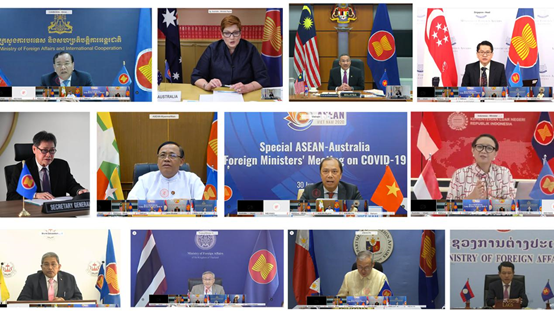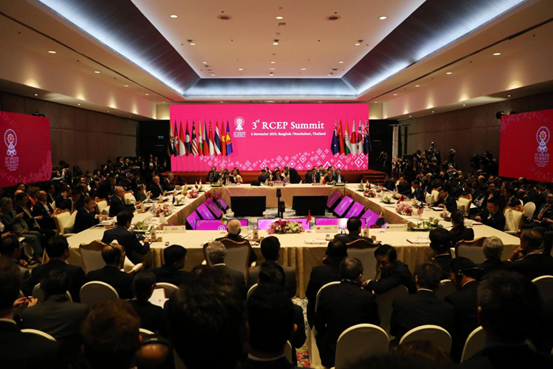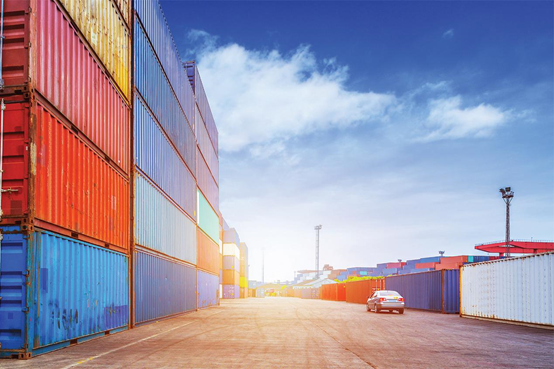

By Ismira Lutfia Tisnadibrata
Indonesia is eagerly anticipating the signing of the Regional Comprehensive Economic Partnership in November, believing the China-led trade pact could pave the way for more economic activities and a stronger recovery from the COVID-19 pandemic.
However, it appears to have lost enthusiasm for the Comprehensive and Progressive Agreement for Trans-Pacific Partnership (CPTPP), another trade deal that some Southeast Asian countries have joined and others, including Thailand, are considering. The main reason is that the CPTPP no longer includes the United States, a major market with which Jakarta would like to do more business.
“The planned signing of the RCEP in November would have a significant impact on the post-pandemic economic recovery in the region,” Foreign Minister Retno Marsudi said after a virtual meeting of ASEAN and Australian foreign ministers.

“The 15 countries that have agreed to the RCEP including Australia form a very large global economic power, comprising a quarter of the world’s GDP and 2 billion population.”
The RCEP, she said, would complement other regional pacts including one that ASEAN has with Australia and New Zealand, to help strengthen regional cooperation for a post-pandemic economic recovery drive.
The RCEP brings together the 10 members of ASEAN plus China, Japan, South Korea, Australia and New Zealand. They all reaffirmed recently that the world’s largest trade pact would be signed later this year — nearly five years after the original deadline.

Apart from being an ASEAN-driven initiative, the RCEP is considered to be more balanced and accommodating to the conditions of developing countries than the CPTPP. The latter began life as the Trans-Pacific Partnership and many of its norms were set by the United States before it pulled out. Some of the more contentious provisions have since been dropped but developing countries still see potential difficulties.
Yose Rizal Damuri, the chief economist at the Center for Strategic and International Studies (CSIS) Indonesia, told Asia Focus that the RCEP seems to have made more progress than the CPTPP. Even some countries that have signed the latter seem to be stalling when it comes to ratification, and its implementation seems to be lacklustre.
“The commitments set out in the CPTPP are considered too costly for Indonesia to make, such as amending laws and regulations and to do that, they come with social, political and economic costs that are too high for Indonesia at the moment,” he said.
Mr. Damuri said the costs outweighed the benefits of joining the CPTPP, especially since it is no longer a channel to enter the US market since Washington has pulled out of the trade pact.
“On the other hand, there are also the costs of not joining, of what we could be missing if we don’t join a certain trade pact. Currently for Indonesia, the cost of not joining the CPTPP is considered low,” he said.
Enggartiasto Lukita, a former Indonesian trade minister, said in September last year that with Jakarta’s focus on finalising the RCEP, it was not considering joining the CPTPP as the pact has lost its appeal without access to the US market of 330 million people.
As it works to revive an economy that has contracted during the pandemic, Indonesia has little time for the lengthy process involved in multilateral negotiations such as the CPTPP, having already spent years thrashing out details of the RCEP. Besides, Indonesia and ASEAN were in a position to set the norms for the latter agreement.

In Jakarta’s view, multilateralism and regionalism must also be strengthened by bilateral cooperation, in particular to cope with the challenges arising from the pandemic. The focus for now is on quick wins from concrete economic engagement that would benefit the country’s 260 million people and maintain positive economic growth at a time when other countries are seeing contractions, said a government official who spoke on condition of anonymity.
Data from Statistics Indonesia showed that the economy grew 3% in the first quarter, down from 5.1% a year ago. However, Finance Minister Sri Mulyani said GDP could contract by 3.1% in the second quarter in light of severe curtailment of activity that began in March.
Jakarta and other parts of the country have started to loosen some of the restrictions imposed to combat the spread of COVID-19. Business activity is gradually resuming, but at a reduced pace in light of social restrictions and health protocols as new daily case numbers are still high.
· Source: ASEAN Post
桂ICP备14000177号 Copyright@2006-2013 Guangxi China-ASEAN Panorama Magazine Agency Co., Ltd. All Rights Reserved